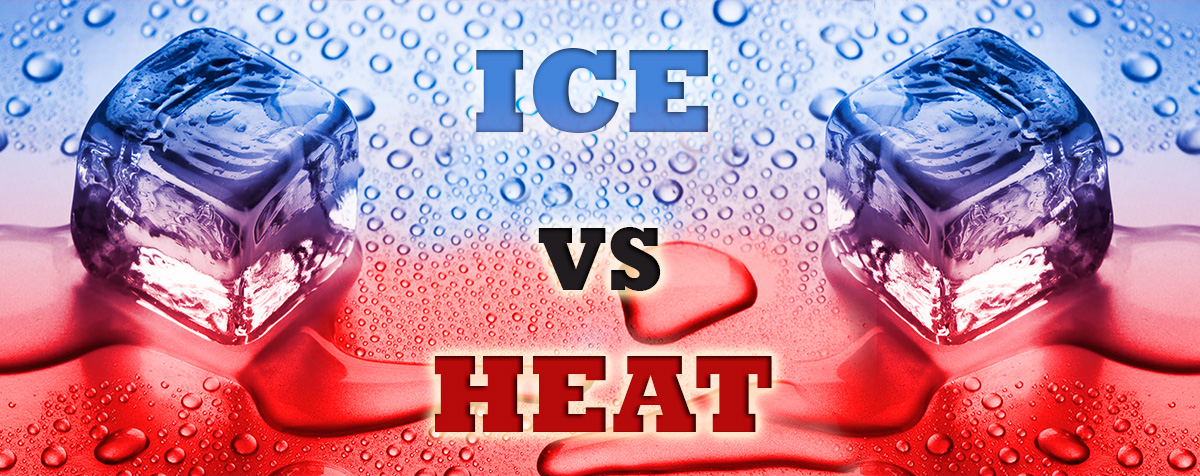Should You Ice or Heat an Injury?
Ice packs and heating pads are among the most commonly used treatments in orthopaedics. So which one is the right one to use for your injury, ice or heat? And how long should the ice or heat treatments last? Read on for information about treatment of injuries with ice packs and heating pads.

Ice Treatment
Ice treatment is most commonly used for acute injuries. If you have had a recent injury (within the last 48 hours) where swelling is a problem, you should be using ice. Ice packs can help minimize swelling around the injury, reduce bleeding into the tissues, and reduce muscle spasm and pain.
Ice packs are often used after injuries like ankle sprains have occurred. Applying an ice pack early and often for the first 48 hours will help minimize swelling, and decreasing swelling around an injury will help to control the pain. Ice treatments may also be used for chronic conditions, such as overuse injuries in athletes. In this case, ice the injured area after activity to help control inflammation. Never ice a chronic injury before activity.
You can make ice packs with ice cubes in a plastic bag or wet tea towel; a pack of frozen peas is also ideal and can go in and out of the freezer. Never place ice directly on an injury; keep the pack moving to avoid ice burns. Never treat with ice for more than 30 minutes, and remove the pack immediately if the injury appears bright pink or red.
Don’t use ice packs on the left shoulder if you have a heart condition, and don’t use ice packs around the front or side of the neck.
Heat Treatment
Heat treatments should be used for chronic conditions to help relax and loosen tissues and to stimulate blood flow to the area. Use heat treatments for conditions such as overuse injuries before participating in activities.
Do not use heat treatments after activity, and do not use heat after an acute injury. Never use heat where swelling is involved because swelling is caused by bleeding in the tissue, and heat just draws more blood to the area.
Heating tissues can be accomplished using a heating pad, or even a hot, wet towel. When using heat treatments, be very careful to use a moderate heat for a limited time to avoid burns. Never leave heating pads or towels on for extended periods of time or while sleeping.
Other Precautions
Don’t use cold or heat packs:
- over areas of skin that are in poor condition
- over areas of skin with poor sensation to heat or cold
- over areas of the body with known poor circulation
- if you have diabetes
- in the presence of infection
If you have questions regarding the proper treatment of an injury, call the doctors or physical therapists at Professional Orthopaedic Associates today at (732) 530-4949.